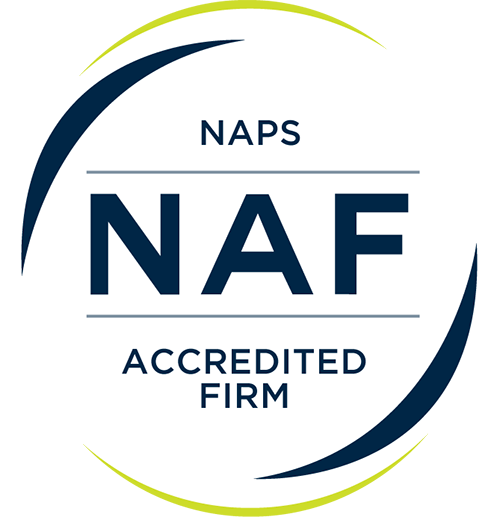A year ago, I talked about careers in animal science in the “Coffee and Careers” series I did with SunswineGroup. Most animal science majors expect to become veterinarians. However, most of them don’t for the following reasons. They can’t handle surgery, they have a low GPA, their college debt is too high, or they discover their lack of chemistry with animals.
When becoming a veterinarian is ruled out, is an animal science degree still worth it? Well, they need to explore other career paths in animal science beyond becoming a veterinarian. From animal husbandry and government roles to academia and not-for-profits, a wide array of options are available.
Here are more career paths in animal science:
Work in live animal production
Working in live animal production requires living where the animals are. These are typically in rural areas. Job opportunities may include working as an independent producer, a contact grower, a service representative, or a production manager. You must have a natural affinity for animals, be in a barn, and be willing to do physical work.
Work in the government
When working with the government, you could be a data analyst, a scientist, or in the regulatory sector. You may work for the USDA, the FDA, the Department of Agriculture of different states, state veterinarians, the military, large counties that have roles for animal scientists, or on large metros when you’re willing to work with dogs or horses.
This career path offers stable employment, a path to advancement, and excellent government benefits. You will, however, put up with bureaucracy and reside wherever the government tells you. There’s only one government per state—and when you work with the federal government, most opportunities are around the metro. At max, there are only 60 different employers.
Work in academia
If you’re passionate about teaching or research, consider becoming a professor. You can also work in extensions or for basic and applied research development. Your employers will be either state land-grant universities or private universities.
Your options may be limited because only some universities have animal science departments. Another drawback is the potential need for more funding. To secure top jobs, you must finish your doctorate. Another concern is that most professionals in this career path are only in it for the grant money rather than the teaching or research—an intriguing food for thought.
Work for a not-for-profit
Working for a not-for-profit organization is gratifying—you feel as though you’re making an impact. Some organizations have real voices and huge funding. However, most of them have less funding and lesser compensation.
The different types of organizations you can work with in this career include research organizations, trade associations, zoos, and scientific associations. These include the NCBA, PSA, ADSA, and ASAS. You may take on the role of a farm manager, researcher, member of communications, marketing, member recruitment, government relations, animal caretaker, and more.
Work for the industry
Working as a veterinarian isn’t the only profession you can take on in the industry. Although it would really make a great starting career whether you work in a clinic or have small practice. There are other employment options you can explore. Some of the most common include:
- Technical Support
- Product Development (R and D)
- Animal Nutritionist and Formulator
- Sales
- A Role in Manufacturing Operations
- Marketing and Production Promotion
Most of these jobs give you unlimited income potential and career advancement. They also allow you to apply science practically. You’re feeding the world, and some setups even work from home.
You can be part of food production companies like Tyson and Pilgrim. Food companies and Nutrition Products like Land’O Lakes, Kemin, Kent, Hubbard, Biomin, Adisseo, Genetics and Genetics Companies, Animal Health, and Pharma.
Now, when choosing which career path to take, there are things you need to consider. As a fresh grad, you’re most likely thinking about your first job, not your career. Hence, most fresh grads don’t last a year with their first jobs.
Avoid this mistake by considering these factors before pursuing a path in career science.
1. What do you want to deal with?
I know it’s obvious that with animal science, you would like to deal with animals. However, you have seen that there is more to this degree than that. According to your personality, do you deal with people, data, things, or animals better? If people, you may consider a career in sales or marketing. If data, handle research. You will find handling manufacturing interesting if you like to deal with data more.
2. Are you willing to travel overnight?
If not, you may narrow down your opportunities. Consider whether you like being at home every night for dinner or manage to be on the road. Think about your lifestyle.
3. What do you want your work environment to look like?
Would you be in a barn — close to animals? Maybe you like being in a manufacturing or processing plant better. Consider if an office or lab work fits your personality. A classroom can also be a working setup. If you enjoy travel that much, maybe you can manage to be on the road often in a work environment. Considering COVID and recent events, do you want to stay home for work? Think and reconsider.
4. What organization do you want to be with?
Do you thrive in a fast-paced environment or somewhere slow and steady? Do you want to be part of big organizations? A startup might suit you better. Are you creative? Or are you more built for a structured environment? You may also want to consider whether you’re more built for not-for-profits.
5. Do you live where the animals are?
If you’re in North Carolina and pursuing a career in dairy, think again. There aren’t enough cows in the Carolinas to support your profession. You may want to relocate somewhere else where there are enough animals to make a living.
6. How will your choice impact your loved ones?
Advancement may necessitate relocation. Can you live away from your family? If living away from them affects your stress management, then that’s a point to reconsider. You may also need to choose between a steady income or chasing after big wins. Consider how your career path will impact your family and personal life.
To end this article, here’s a helpful tip to fully use your animal science degree. Some people finish this degree but do not get enough job offers. Those with multiple job offers had one thing in common—they had worked with animals.
Get practical experience with animals. Do it for a year or two. Work in live production, processors, or milk cows! The knowledge you’ll pick up and the appreciation you’ll gain with the producer will get you the job you had in mind, the environment you desire, and the salary range you hoped for when you earned this degree. Then, you can finally say your animal science degree is well worth it!
For more career tips or available jobs in animal science, visit continentalsearch.com or send Dan Simmons an invite on LinkedIn.







